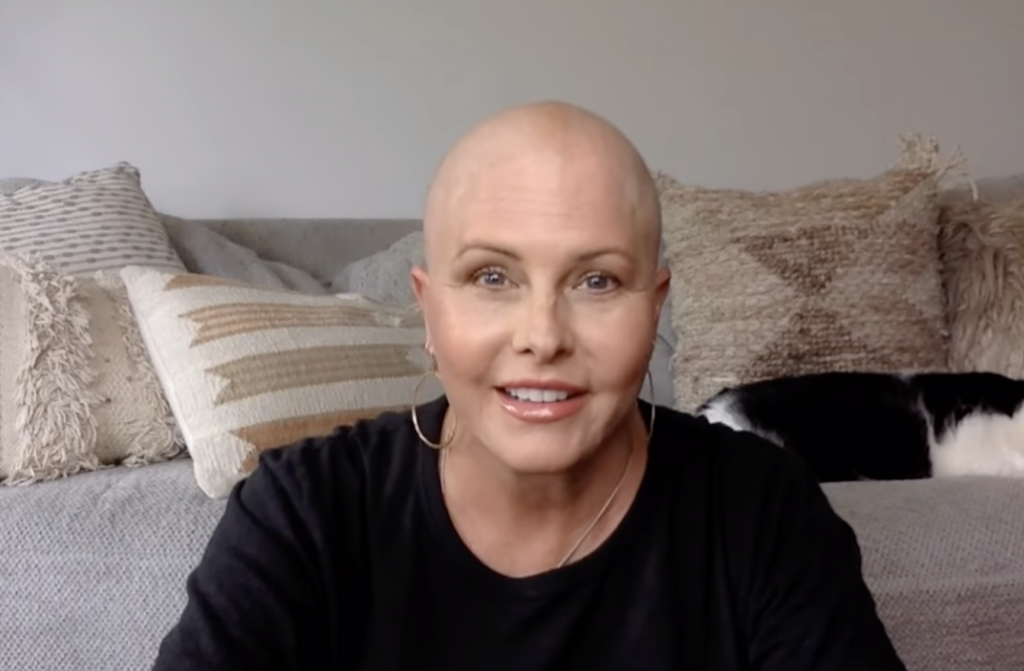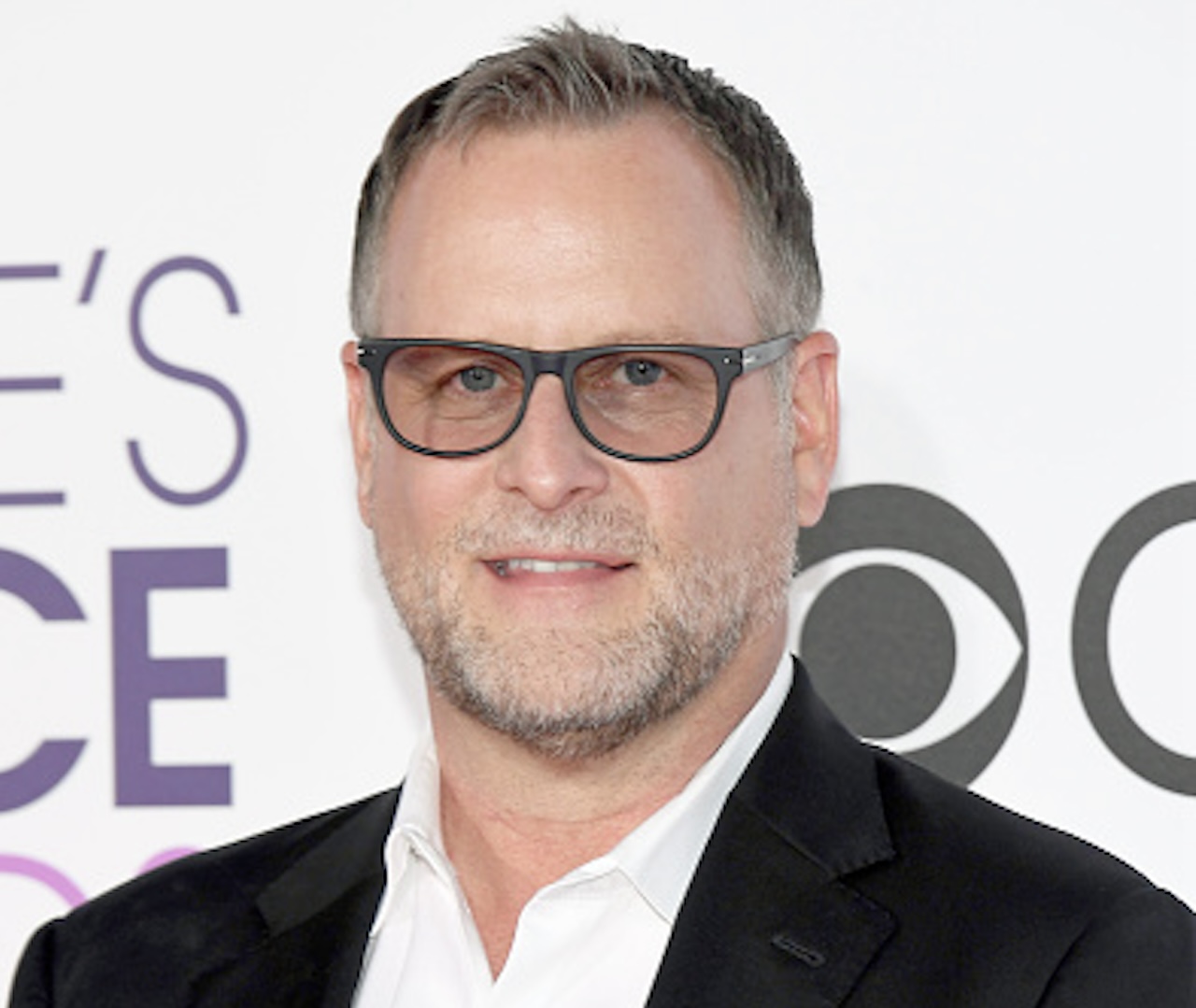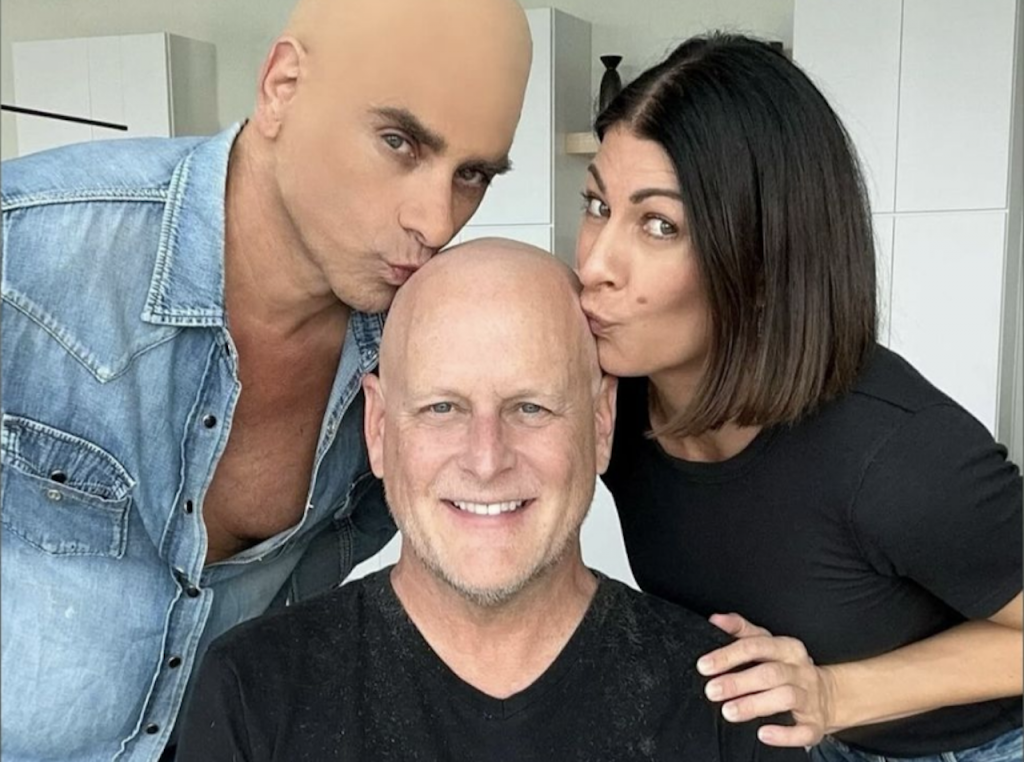Cancer Warriors Offering Hope
- Throughout 2024, several resilient cancer survivors bravely shared their journeys to inspire other patients to keep hope.
- Actors James Van Der Beek from “Dawson’s Creek,” Michael C. Hall from “Dexter,” and “Full House” star Dave Coulier all either revealed they were battling cancer or surpassed a milestone moment many years after a diagnosis.
- “Baywatch” actress Nicole Eggert also brought fans along for her cancer journey with stage 2 breast cancer — and has inspired many with her candor and honesty about the how the journey has affected her emotionally as well as physically.
- Nearly two years into hospice care, former U.S. President Jimmy Carter, 100, surpassed doctor’s expectations with his resilience almost a decade after being diagnosed and treated for metastatic melanoma.
SurvivorNet has highlighted a few cancer survivors and people still in the trenches of their journeys. As we embark on a new year, we take a moment to reflect on five incredible cancer survivors who have inspired us throughout 2024.
James Van Der Beek
Read More
WATCH: What happens during a colonoscopy?
The American Gastrointestinal Association lowered the recommended initial age for a colorectal screening from 50 to 45. Likewise, the U.S. Preventive Services Task Force recommends guidelines that state colon cancer screenings should begin at 45 years old. This is in response to the increase we see in colon cancer diagnoses in younger adults.
Nicole Eggert
Former “Baywatch” star Nicole Eggert, 52, has been navigating her breast cancer journey for a year now. She’s now reflecting on a challenging 12 months filled with treatment, hair loss, and a deepened appreciation for life.

She was diagnosed with stage 2 cribriform carcinoma breast cancer after discovering a lump in her breast while performing a self-breast exam. Experts recommend women regularly perform these types of exams on themselves to keep watch for anything abnormal in the breasts. If anything concerning is felt, it’s important to contact a doctor immediately. Self exams should be done alongside regular mammograms, not be a replacement for them.
WATCH: Which mutations are important to look for in breast cancer?
Eggert shared a piece of advice with a year of her cancer journey behind her.
“Do all of the things: do your mammograms, do your self-exams, just do them because if you’re afraid of a mammogram, I really don’t want to see you faced with chemo or mastectomy or any of these things, and the sooner you find it, the easier it is to treat,” Eggert said on the “Real Pink” podcast.
The former actress is still undergoing treatment.
Dave Coulier
“Full House” star Dave Coulier, 65, best known for his role as “Joey” on the popular ‘90s sitcom, is currently living with stage 3 non-Hodgkin lymphoma. He revealed that he had been diagnosed with blood cancer in early November. The actor was no stranger to the impact of a cancer diagnosis. His mom and sisters all were diagnosed with a form of cancer.
“I saw what those women in my family went through, and I thought to myself, ‘If I can be just 1/10th of a percent as strong as they were, then I’m going to be just fine,’” Coulier told US Magazine.

All non-Hodgkin lymphomas begin in white blood cells known as lymphocytes, which are part of your body’s immune system. From there, doctors separate these cancers into types depending on the specific kind of lymphocytes they grow from — B cells or T cells.
“Non-Hodgkin lymphoma is a big category,” Dr. Julie Vose, chief of hematology/oncology at the University of Nebraska Medical Center, previously told SurvivorNet.
WATCH: For treatment, the type of lymphoma you have matters.
Knowing which of these you have can help steer you to the most appropriate treatment.
Coulier is currently undergoing chemotherapy and is expected to complete it in February 2025. Although he’s taking it in stride, he’s experienced hair loss — a known side effect of chemotherapy.

Hair loss from chemotherapy usually begins about three to four weeks after treatment starts and continues through treatment.
This happens because this treatment targets quickly dividing cells throughout the body, including cancer and hair cells.
Most patients can expect regrowth four to six weeks after treatment ends. However, when your hair grows back, you may notice some changes in its color and texture.
Michael C. Hall
Actor Michael C. Hall, 53, is serving as executive producer for the prequel to “Dexter,” which is currently airing. He also serves as the narrator in the new show, “Original Sin.” While filming the television series during its original run, Hall was diagnosed with Hodgkin lymphoma, a type of blood cancer. He tried to keep his cancer diagnosis private until the side effects of chemotherapy made that increasingly difficult.

He began chemotherapy the day after he finished filming the television show. However, his quest to keep his cancer diagnosis a secret became increasingly more difficult because chemo side effects, including hair loss, drew attention and concern.
“I really underestimated how much [other people’s support] would be a source of inspiration or strength,” Hall told The Guardian at the time.
Some people battling a disease or cancer are open to sharing their experiences as much as they can, while others prefer to keep it to themselves or close loved ones. SurvivorNet experts say both approaches and everything in between are valid.
WATCH: Sharing a Diagnosis
Hall has since reached remission after treatment.
Lymphoma treatment largely depends on the nature of your specific diagnosis. For non-Hodgkin lymphoma patients, their cancer is more likely to spread randomly and be discovered in different groups of lymph nodes in the body. Hodgkin lymphoma cancers, on the other hand, are more likely to grow consistently from one group of lymph nodes directly to another.
Treatment options for Hodgkin lymphoma include chemotherapy, radiation, targeted therapy, immunotherapy, and chemo with stem cell transplant.
Former President Jimmy Carter
Former U.S. President Jimmy Carter remarkably celebrated his 100th birthday this year. He also fulfilled a goal—to vote for fellow Democrat Vice President Kamala Harris in the 2024 Presidential election.

Carter was diagnosed with metastatic melanoma in 2015.
Melanoma starts in the same cells that give your skin, hair, and eyes their color. Only in melanoma do the cells change in a way that allows them to spread to other organs. While it’s mostly found on areas of your skin exposed to the sun, it can also develop in areas that rarely receive sun rays. These areas may include the palms of your hands, soles of your feet, your eyes, inside your mouth, and under your nails.
Carter underwent treatment, giving the decorated former president a fighting chance. He was treated with Keytruda, a type of immunotherapy drug called a checkpoint inhibitor. It works by interfering with signaling pathways between T cells and cancer cells, preventing cancer cells from hiding from the body’s T cells. More specifically, Keytruda takes the brakes off the immune system, allowing the body’s T-cells to do what they are meant to: fight off invaders or abnormal cells like cancer cells, among other things.
The former president reportedly announced to his church in March 2016 that doctors stopped his treatment after seeing no more signs of tumors. Then, in 2019, Carter had surgery to relieve pressure on his brain caused by bleeding from his multiple falls at home.
WATCH: Palliative care improves your overall treatment by focusing on comfort.
Since February 2023, President Carter has received hospice care, which means his doctors have stopped treating any ongoing ailments. Carter’s remarkable resilience has surpassed his doctors’ expectations.
Learn more about SurvivorNet's rigorous medical review process.

